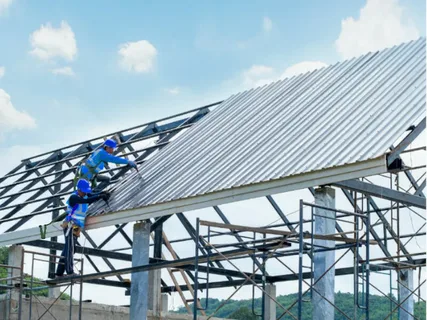Understanding Commercial Roofing Systems
When it comes to protecting your business, investing in a durable and reliable commercial roofing system is crucial. The right choice ensures longevity, energy efficiency, and cost-effectiveness. With various options available, selecting the best material depends on factors such as climate, building structure, and budget.
Key Factors to Consider When Selecting a Commercial Roof
Choosing the best roofing material involves evaluating several critical factors:
- Durability and Longevity: A strong roof withstands harsh weather conditions and minimizes maintenance costs.
- Energy Efficiency: Materials with reflective properties help reduce cooling expenses.
- Installation and Maintenance: Some roofing systems are easier to install and maintain than others.
- Cost-effectiveness: Balancing upfront costs with long-term benefits is essential.
Exploring the Best Commercial Roofing Materials
Thermoplastic Polyolefin (TPO) Roofing
TPO is one of the most popular commercial roofing materials due to its energy efficiency and durability. It reflects UV rays, reducing cooling costs, and provides excellent resistance against chemicals, punctures, and tears. Additionally, TPO is lightweight and easy to install, making it a cost-effective solution for many businesses.
Polyvinyl Chloride (PVC) Roofing
PVC roofing is known for its exceptional strength and resistance to fire, chemicals, and extreme weather conditions. It features welded seams that prevent leaks and enhance durability. Ideal for restaurants and manufacturing facilities, PVC roofs also offer excellent resistance to grease and chemicals, making them a preferred choice in industries requiring a high level of cleanliness and safety.
Ethylene Propylene Diene Monomer (EPDM) Roofing
EPDM, a synthetic rubber roofing material, is widely used for its longevity and weather resistance. It performs exceptionally well in varying temperatures and provides superior flexibility. EPDM is particularly beneficial for flat or low-slope roofs, as it effectively prevents water infiltration and requires minimal maintenance over time.
Modified Bitumen Roofing
Modified Bitumen is an asphalt-based roofing system that offers superior waterproofing and flexibility. It is reinforced with layers of fiberglass or polyester, enhancing its durability. This material is ideal for businesses looking for a cost-effective yet reliable roofing solution. Its multi-layered construction ensures enhanced protection against leaks and extreme weather conditions.
How to Choose the Right Commercial Roofing System
Consider Your Climate
Different roofing materials perform better in specific climates. For instance, TPO and PVC are excellent for warm regions due to their reflective properties, while EPDM is suitable for areas with extreme temperature fluctuations.
Evaluate Maintenance Requirements
If you prefer a low-maintenance roofing system, TPO and EPDM are excellent choices due to their resistance to wear and tear. Modified Bitumen may require periodic inspections to maintain its performance.
Assess Installation Costs
Upfront costs vary depending on the material and installation complexity. TPO and EPDM are generally cost-effective choices, while PVC, though slightly more expensive, provides additional durability and chemical resistance.
Enhancing Your Business with the Right Roofing Solution
A well-chosen commercial roofing system protects your business from environmental factors while contributing to energy efficiency and cost savings. By understanding the strengths of each material—TPO, PVC, EPDM, and Modified Bitumen—you can make an informed decision that ensures long-term benefits.
For expert guidance on commercial roofing solutions, trust Atlas Roofing & Restoration. Our team specializes in high-quality roofing installations and maintenance, ensuring your business receives the best protection possible. Contact us today to discuss your commercial roofing needs.




